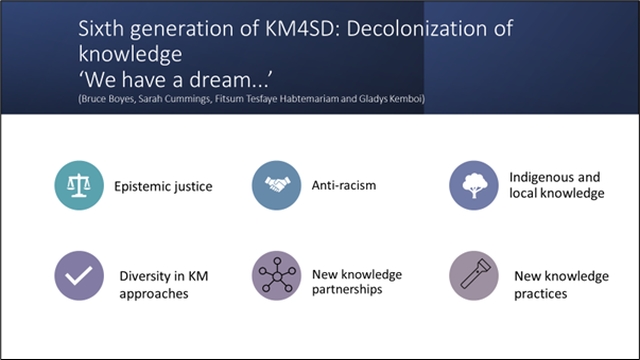
What is the role of organizational commitment in the relationship between knowledge management practices and knowledge worker performance?
Organizational commitment refers to the psychological attachment that an employee has to their organization, so it can be considered as a proxy measure of employee turnover intention. Three types of organizational commitment have been defined: affective, continuance, and normative. Affective commitment refers to the employee’s positive emotional attachment to an organisation. Continuance commitment is employee attachment to the organization because of the satisfaction of their needs. Normative commitment reflects the moral obligations that an employee feels that they have to remain with an organization.
The authors of a recent paper1 alert that the role of organizational commitment in the relationship between knowledge management practices and knowledge work performance has not previously been decisively explored. They set out to help fill this knowledge gap through a study involving a public sector agency, the Health Department of Punjab Province, Pakistan.
The study used the research model shown in Figure 1. The authors advise that this study model had never before been tested, in particular for knowledge management in the public sector which they say is a relatively ignored avenue of research. They also state that in collecting the data from Pakistan, the study contributes to addressing the relatively neglected area of public sector knowledge management in developing countries, with past research having been mostly conducted in developed countries.
The study argues that knowledge worker experiences of knowledge management practices (e.g. knowledge creation, knowledge sharing, knowledge codification, and knowledge retention) can improve their performance. For example, knowledge provision to knowledge workers can improve their task performance, and a culture of learning, rewards, and collaboration can increase their contextual performance.

Findings
The study looked at four aspects of the relationships shown in Figure 1. The results for each aspect were:
- The relationship between knowledge management practices and knowledge worker performance is positive and significant. The authors state that “The results are understandable because knowledge workers’ task improvisation and contextual performance require the use of knowledge resources as the input and experience of knowledge management practices, respectively.”
- Knowledge management practices contribute significantly to organizational commitment. The authors state that “These findings are comprehensible as knowledge management implementation involves nurturing the overall satisfaction on the job via impacting the work environment components and work content components. This increase in satisfaction then leads toward an increase in the organizational commitment.”
- Organizational commitment contributes significantly to knowledge worker performance. The authors state that “These results are understandable as [Peter] Drucker, in his theory of knowledge-worker’s productivity, asserted that the treatment of knowledge workers as an asset by their organization increases the overall organizational commitment. This increase in organizational commitment then leads the workers to exert extra-efforts in addition to their duties, thereby improving their performance.”
- Organizational commitment is a partial mediator in the relationship between knowledge management practices and knowledge worker performance. The authors state that “The possible reason to explain the case of partial mediation might be because of the fact that the output of knowledge management practices is knowledge, which is, and could be, used by knowledge workers as input to increase their knowledge-work performance. Hence, the organizational commitment could be the by-product of knowledge management practices while knowledge-worker performance could be the direct product.”
Recommendations
From their findings, the authors recommend that knowledge management practices should be implemented in public sector agencies, because these practices can foster organizational commitment and knowledge worker performance. They also advise that knowledge management initiatives in the public sector could help in business strategy formulation and evaluation, and that more needs to be done to bring knowledge management in the public sector in developing and least-developed countries up to the level of developed countries.
Acknowledgement: Many thanks to Muhammad Shujahat for providing an open access eprint of the paper “Knowledge management, organizational commitment and knowledge-worker performance: The neglected role of knowledge management in the public sector.” Muhammad is co-author of the paper, and a PhD student affiliated with the Knowledge Management & E-Learning (KM&EL) Lab at The University of Hong Kong.
Reference:
- Razzaq, S., Shujahat, M., Hussain, S., Nawaz, F., Wang, M., Ali, M., & Tehseen, S. (2018). Knowledge management, organizational commitment and knowledge-worker performance: The neglected role of knowledge management in the public sector. Business Process Management Journal. ↩
Also published on Medium.






